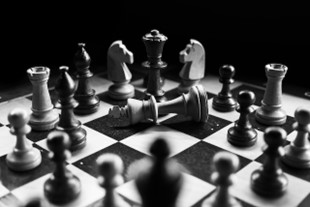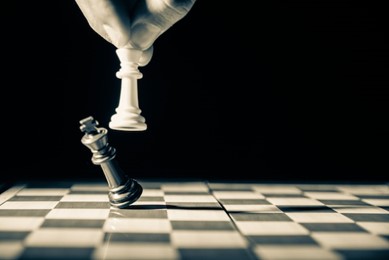Larry Wittig of Pennsylvania, a seasoned advocate for education and strategic thinking, sheds light on how the ancient game of chess hones critical faculties, preparing individuals for the multifaceted challenges of modern life. In the following article, Larry Wittig explores how chess serves as a dynamic training ground, cultivating a strategic mind that transcends the boundaries of the board.
Chess, often dubbed the “game of kings,” is more than just a pastime. It’s a powerful tool for mental development, honing critical thinking skills in a way few other activities can. Below, Larry Wittig explores how the ancient game of chess shapes prepares players to navigate complex challenges in various aspects of life.
Larry Wittig on Cultivating Cognitive Skills for Academic Excellence
Chess has been around for centuries, but it is still as popular today as when it was first introduced.
Larry Wittig of Pennsylvania explains that it’s for a good reason – not only is the game fun and challenging, but it also offers numerous cognitive benefits. In fact, some countries believe in the powers of chess so much that they made it a compulsory subject in school.
Countries such as Spain, Hungary, Romania, and Armenia have had chess in their school curriculum for years. They believe that teaching the game to pupils will help improve their cognitive skills in areas such as mathematics.
Chess and Cognition: The Top 5 Benefits
Chess is good for the brain, and there’s plenty of science to back it up.
According to a 2017 study by researchers at the University of Liverpool Department of Psychological Sciences, playing chess enhanced the overall cognitive ability and mathematical skills of primary and middle school students who participated in the study.
Another concluded that chess players scored higher in cognitive ability tests compared to those unfamiliar with the game. They also performed significantly better at standardized tests of intelligence.
Larry Wittig of Pennsylvania discusses below just some of the many benefits to learning the strategic game:
• Decision-Making Under Pressure
Larry Wittig explains that chess demands players to make calculated decisions under pressure. Each move can have far-reaching consequences, akin to the weighty choices we face in our daily lives. This instills a sense of responsibility and sharpens the ability to evaluate options with precision.
• Anticipating Consequences
A game of chess is a cascade of decisions, with each move opening new possibilities, while closing others. Players learn to anticipate their opponent’s responses and consider the broader implications of their actions. This foresight fosters a habit of thinking several steps ahead in any scenario.
• Pattern Recognition
Larry Wittig of Pennsylvania explains that chess is a game of patterns. Recognizing these patterns, whether they pertain to potential threats or advantageous positions, is key to success. This skill translates seamlessly into real-world problem-solving, where recognizing familiar structures can lead to more efficient solutions.
• Adaptation and Flexibility
Larry Wittig remarks that no two games are the same, and strategies must adapt to evolving circumstances. This mirrors life’s unpredictable nature, teaching individuals to be flexible in their thinking and to adjust their approaches when faced with unforeseen challenges.
 • Strategic Planning
• Strategic Planning
A successful chess player doesn’t simply react to the opponent’s moves; they formulate a proactive plan. This strategic thinking is invaluable in navigating personal and professional endeavors, where having a well-defined plan often spells the difference between success and stagnation.
• Enhances Cognitive Function
When immersing oneself in strategy, must utilize calculated planning, critical thinking, and problem-solving. This leads to alertness, longer attention span, better memory, and mental sharpness.
• Improves Creativity
When deciding on winning strategies, players need to use their creativity and imagination – they must be able to anticipate various outcomes and scenarios. This outside-the-box type of thinking helps individuals become creative problem solvers, which can be applied to almost every other area of life.
• Fosters Patience and Perseverance
Larry Wittig states that no one becomes a chess pro overnight. Players need to invest plenty of time to become skilled.
A game of chess isn’t something that can be won easily or quickly, either. It takes time to think and strategize before making the next move. As a result, these individuals develop patience and perseverance – and who couldn’t benefit from a little extra patience in life?
• Develops Social Skills
Whether the game is played online or in person, individuals often observe and learn from their opponents’ strategies. When practiced regularly, social skills improve through communication, collaboration, and sportsmanship.
• Encourages a Healthy Form of Entertainment
With its intricate maneuvers and calculated moves, chess is a training ground for critical thinking and problem-solving abilities. Through its challenges, players cultivate a strategic mindset that extends far beyond the board.
Conclusion
The skills sharpened in chess find application in various spheres of life, equipping individuals to face complex problems with confidence and finesse. Embracing the game is not just a leisurely pursuit but an investment in a sharper, more strategic mind.
For children, chess is a wonderful form of alternative entertainment. All too often do we find ourselves glued to screens in our free time. It gets more and more difficult to find ways to entertain ourselves that are both fun and healthy in this highly modern world.
Chess is a great alternative because it exercises the brain, plus it can be mastered by anyone, regardless of age, just about anywhere. Individuals who play chess as a youngster often grow to be critical thinkers and problem-solvers, two traits that can pave the way for their success in life.








